But first, some shopping at the market.
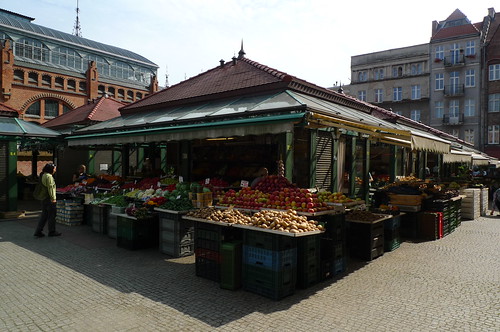
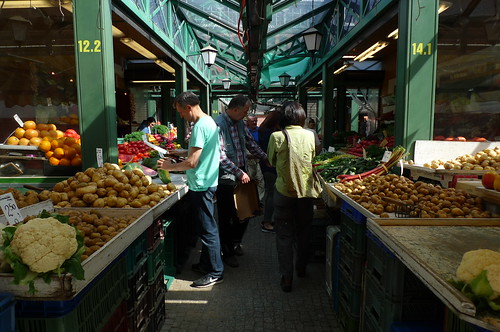
Apparently, every school outing in Poland includes an ice cream break. And how about those vests and kerchiefs?
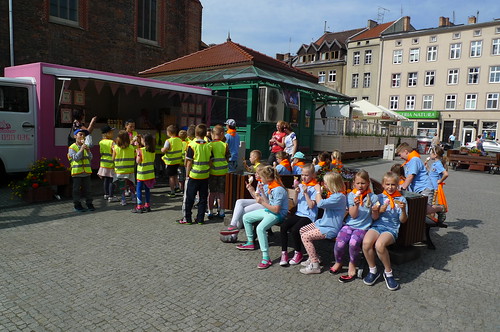
The Gdańsk History Museum is located in the Town Hall with its ceiling paintings.
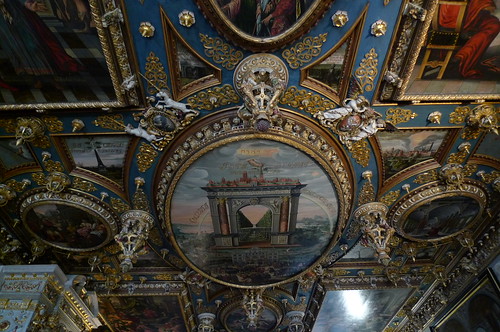
The center painting features scenes from the city of Gdansk. Note the Hebrew script at top and city scenes throughout.
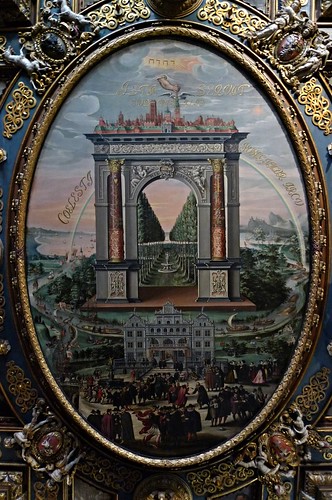
The museum also has an exhibit on the destruction of Gdansk by the Soviet Army in the closing months of WWII, and its subsequent reconstruction. These are obviously images not taken by me.
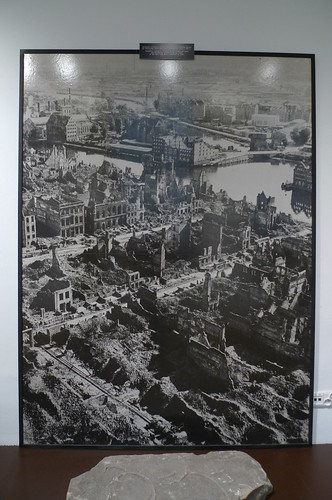
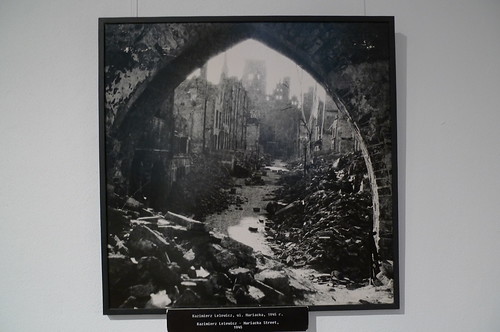
Nearby is Artus Court, a large building that was a meeting place for merchants with a splendid meeting hall, ship models, and a very tall stove.
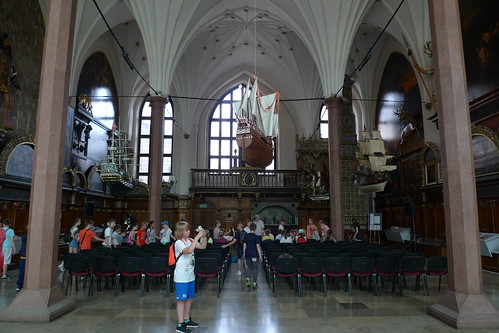
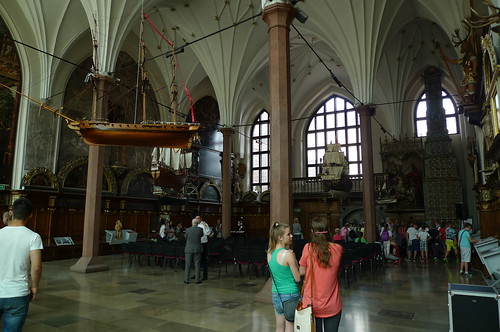
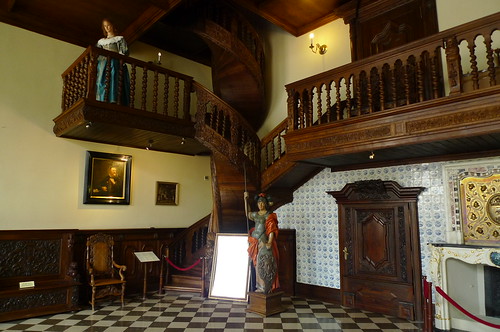
Then up to the Uphagen House, the only townhouse along Dluga Street that, after WWII, was completely restored inside and out to its original state. The other townhouses, all devastated in WWII, had only their facades restored; their interiors are modern.
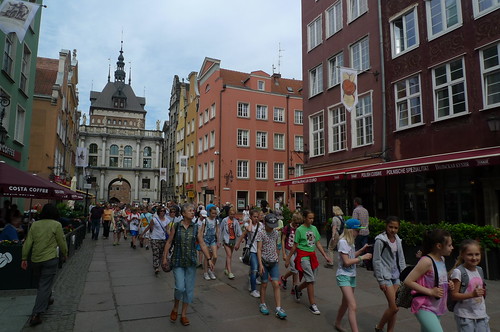
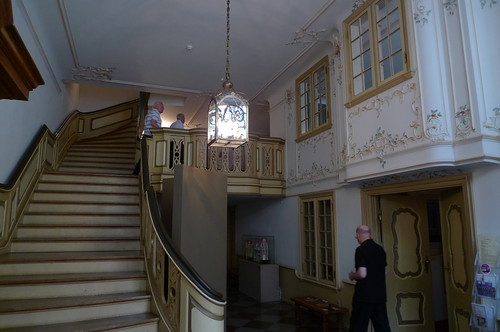
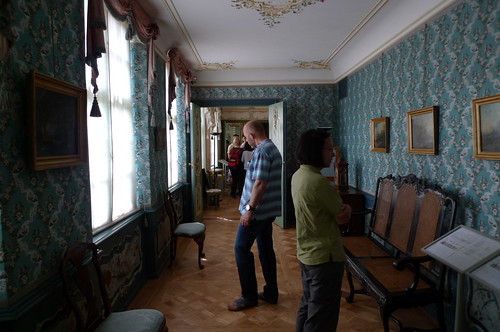
Then to the Amber Museum and Prison Tower; however, the Prison Tower part with its implements of torture is not open on free days it seems, only the Amber Museum was open. Bummer; but the Amber Museum was interesting enough as amber was a part of the economic fabric of Gdansk dating from way back. The historical stuff was informative.
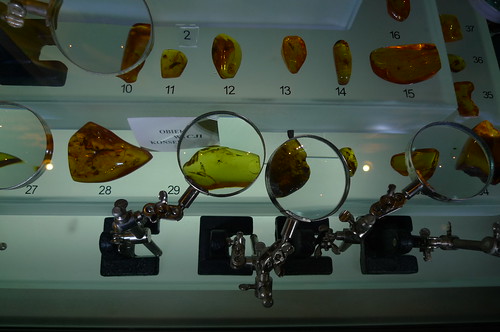
Guitar made of amber.
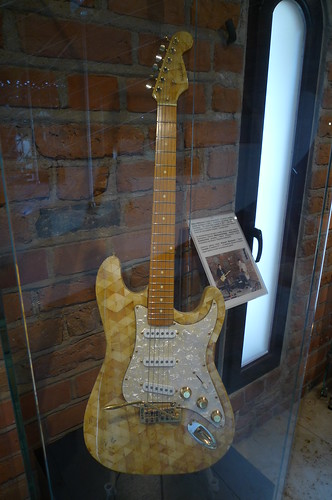
Mariacka Street and its porches is an amber and cafe gauntlet during the day, quiet at night.
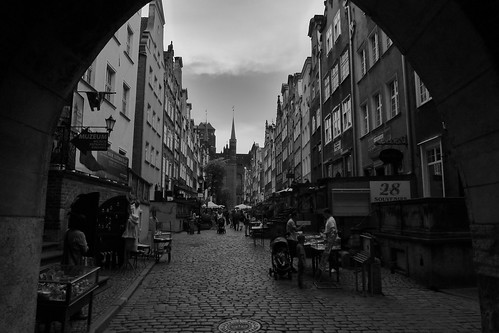
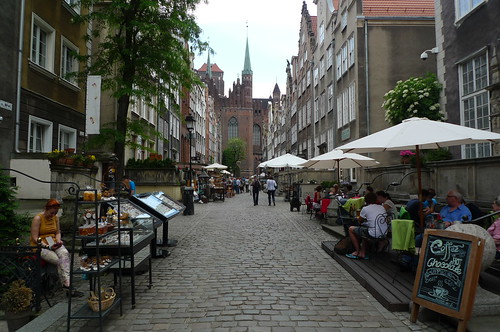
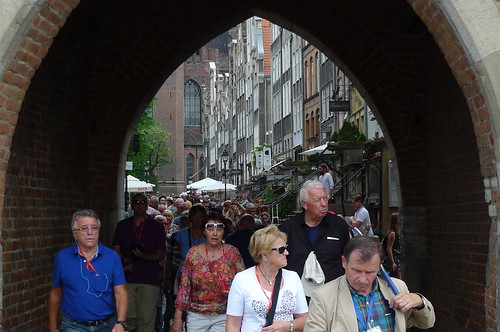
Inside St Mary's Church, the spiritual center of Gdansk. It can hold 20,000 folks. And has an astronomical clock.
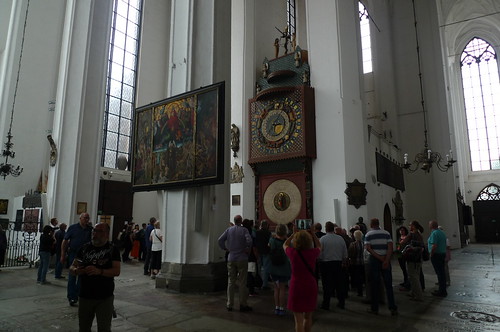
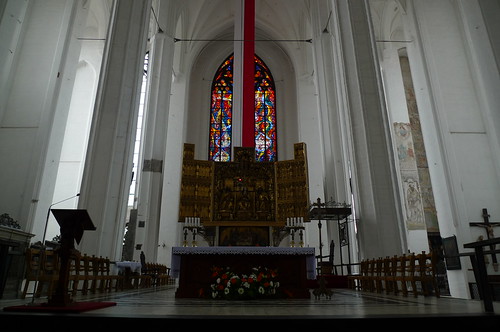
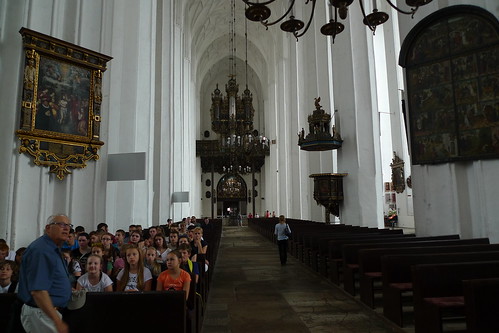
On our way to the Gdansk shipyards and the Solidarity Museum, officially the European Solidarity Centre, we stopped in St. Brygida, the home church of Lech Wałęsa.
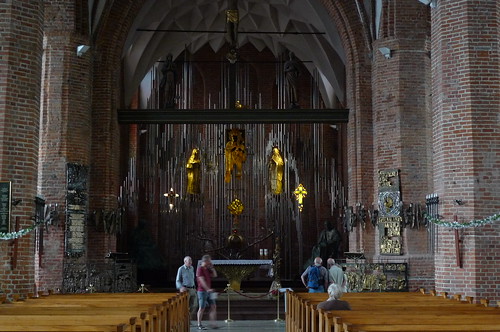
The famous front gates of the Gdansk shipyards. This part of the shipyard is no longer in operation and houses the European Solidarity Centre (seen behind the gates).
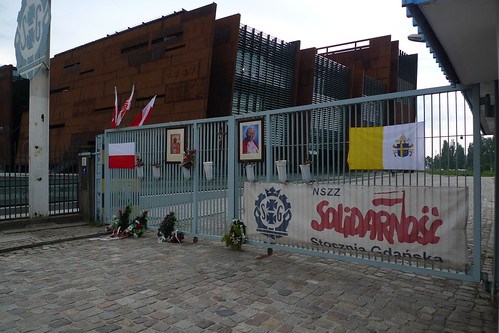
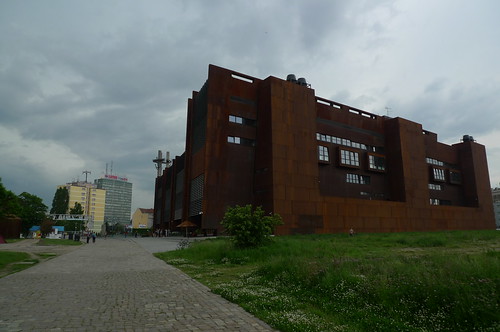
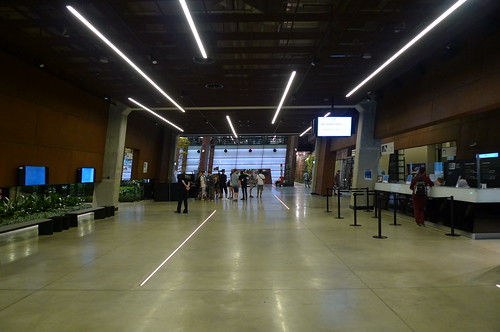
With the monument to the 1970 uprising in front...Growing up during the Cold War and being a shipyard worker in the late 1970's myself, I found this ground to be particularly moving.
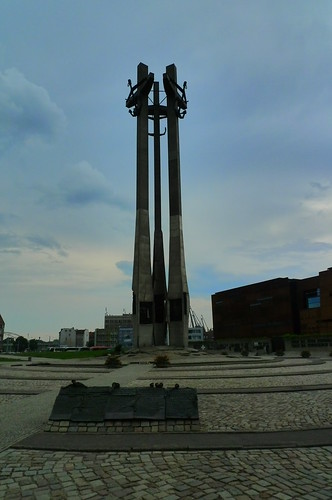
Sunset.
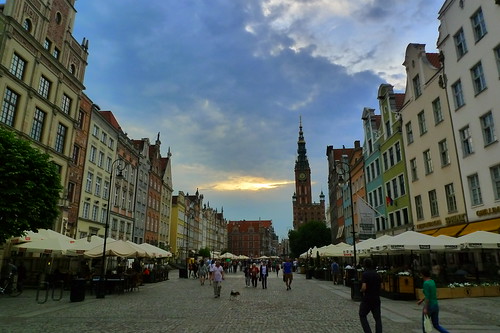
Shipyard worker? Learn something new every day. More monumental churches. The oval painting is breathtaking, fantastic detail. You must've laid on your back on the floor. Vests and kerchiefs and ice cream, what more could one ask for.
ReplyDelete